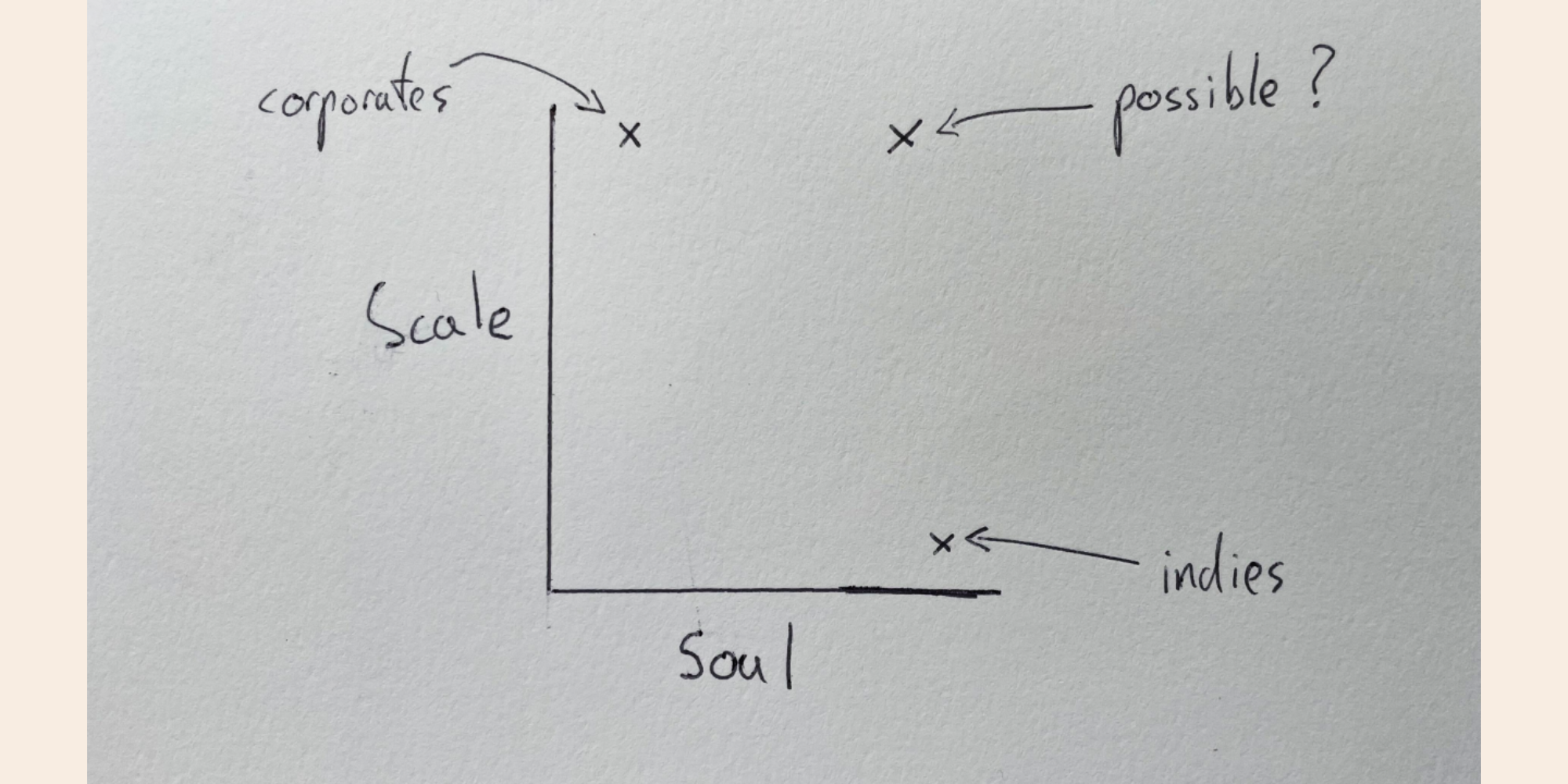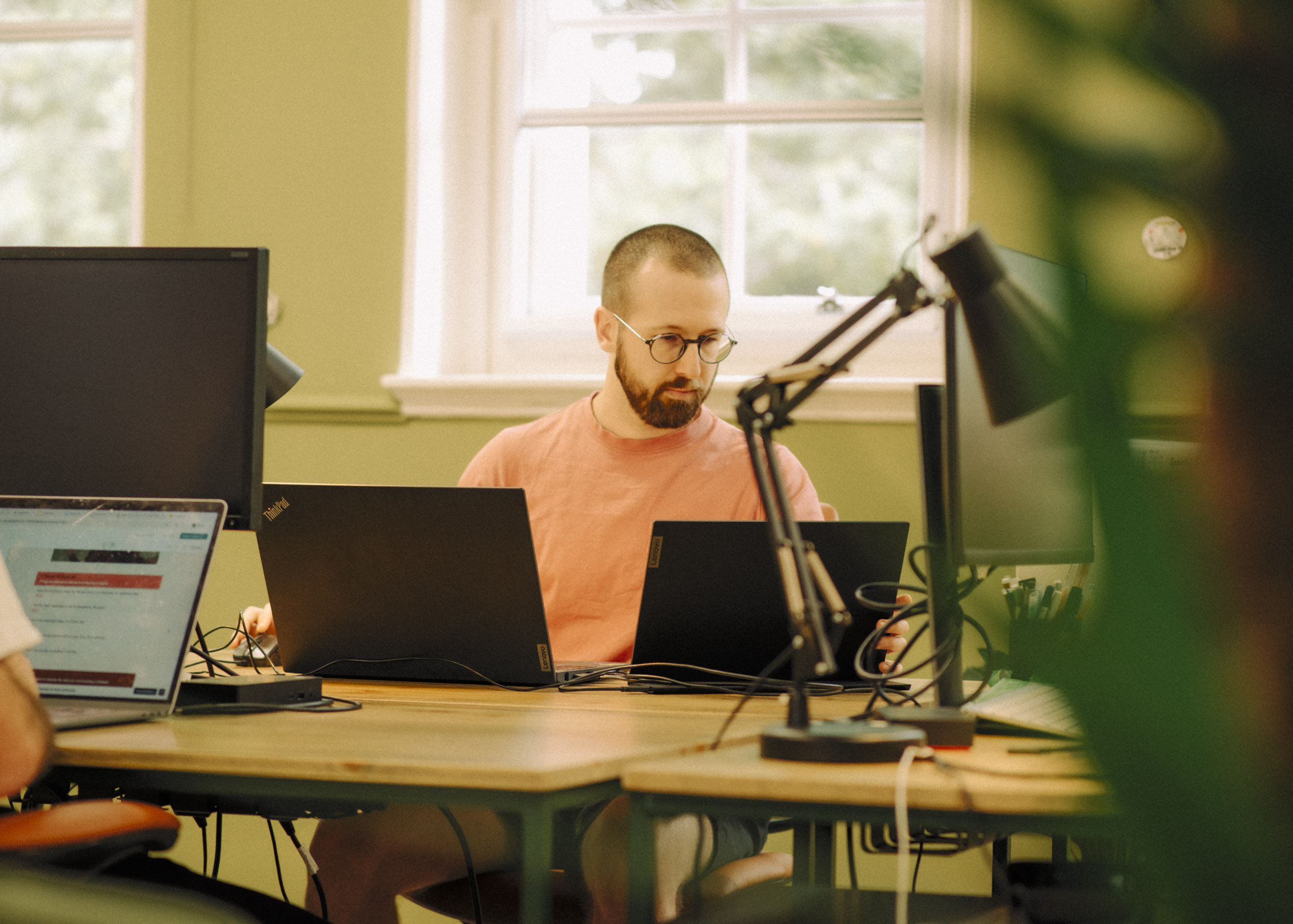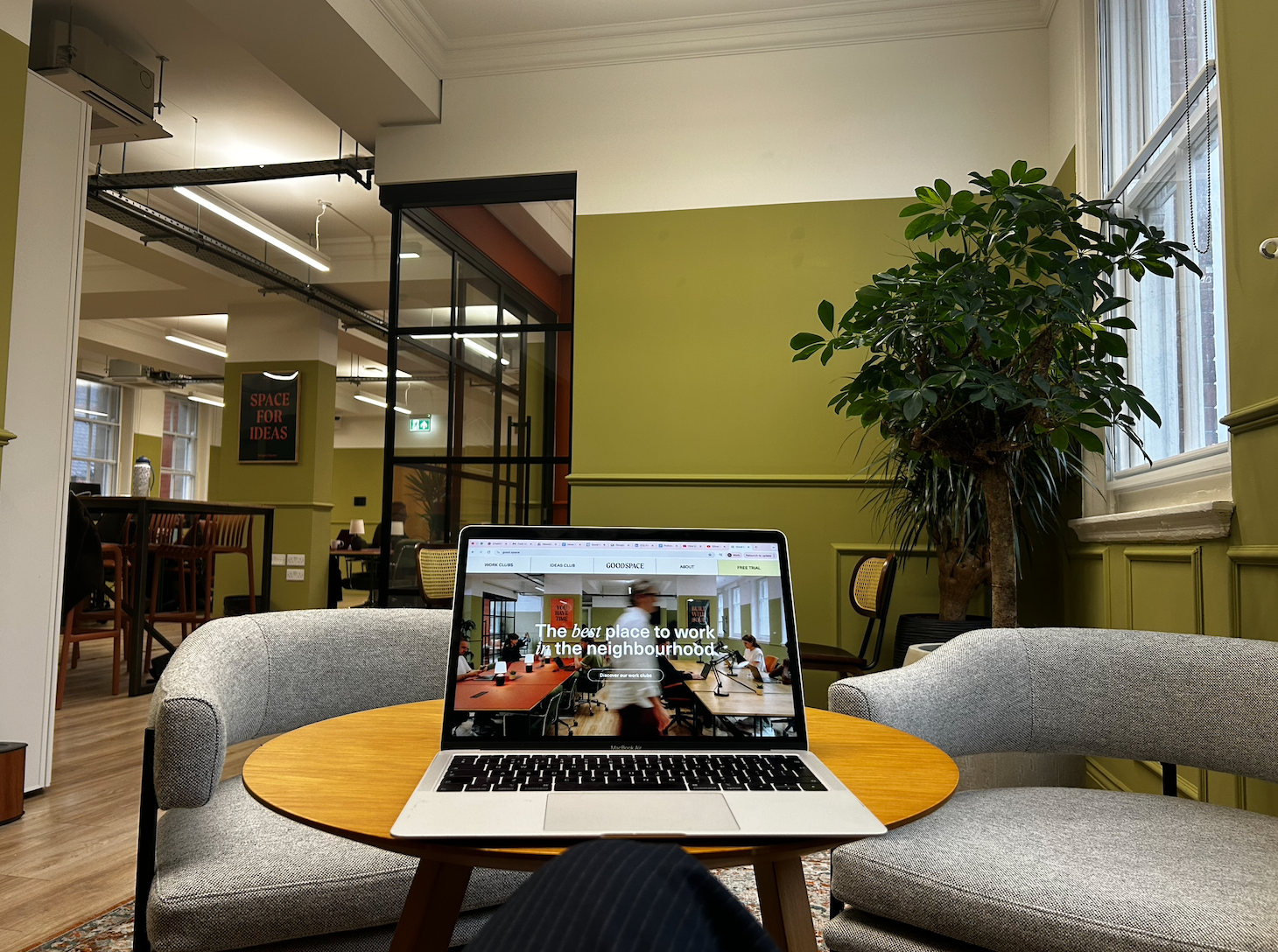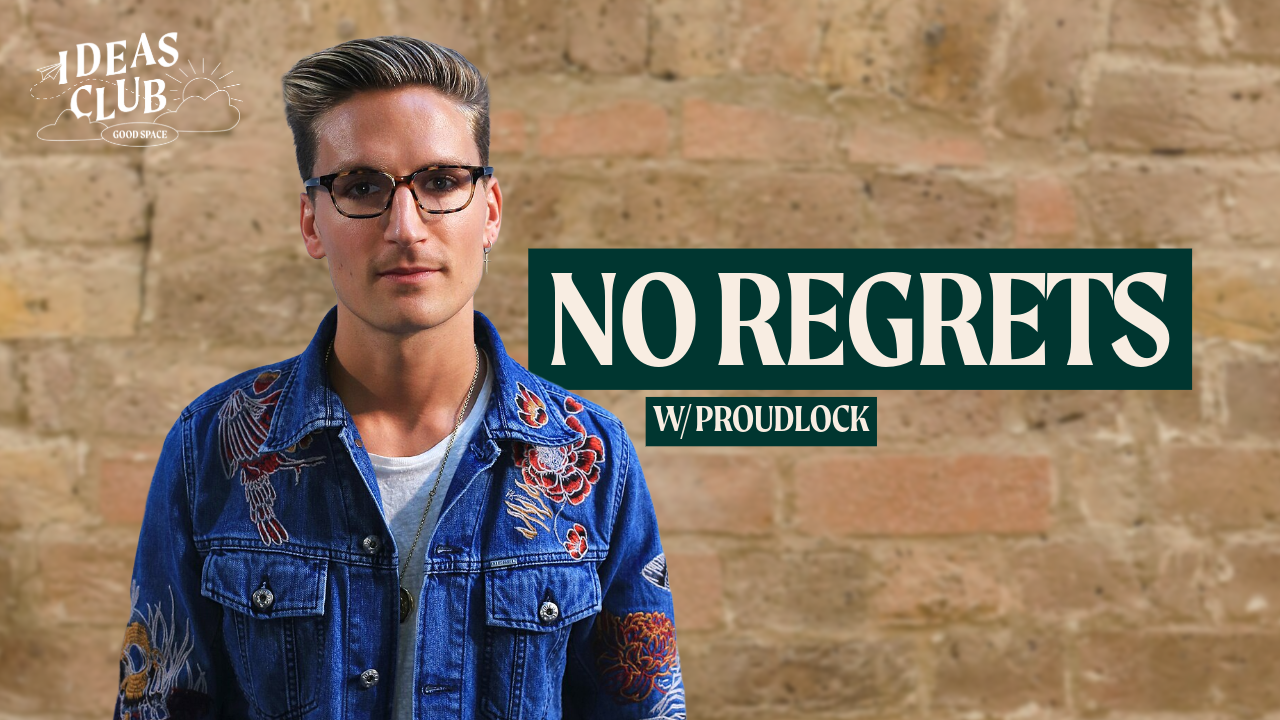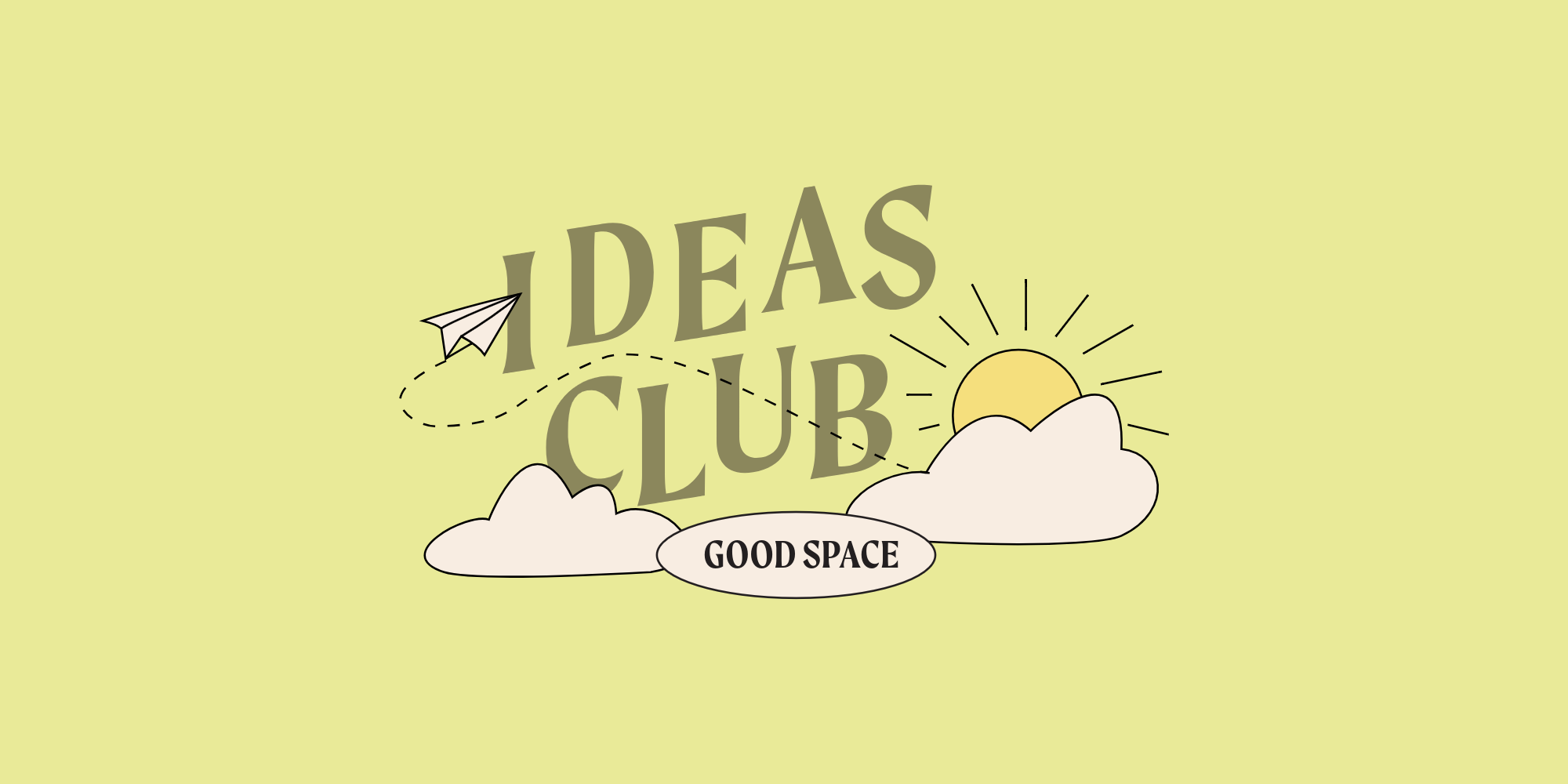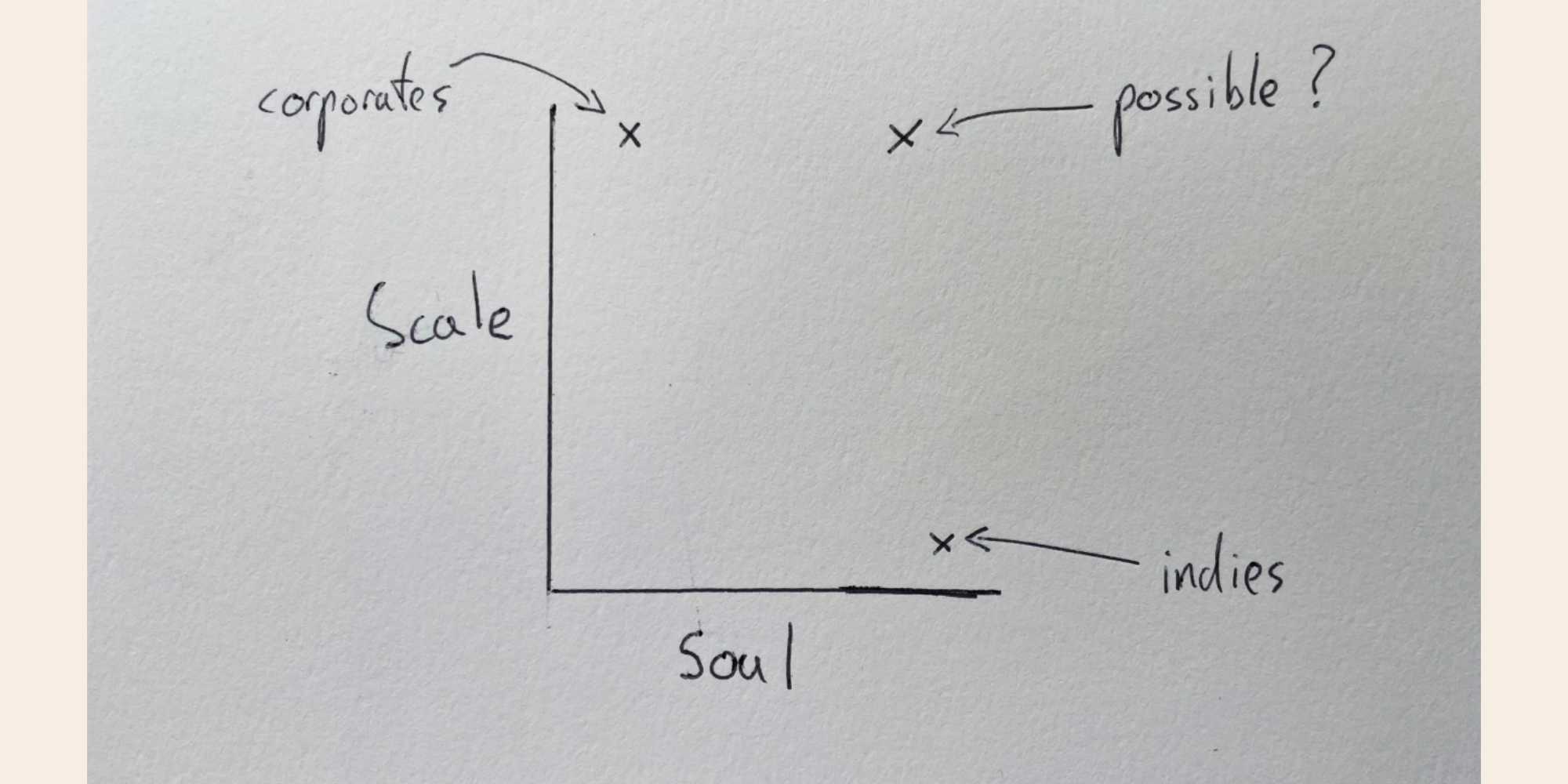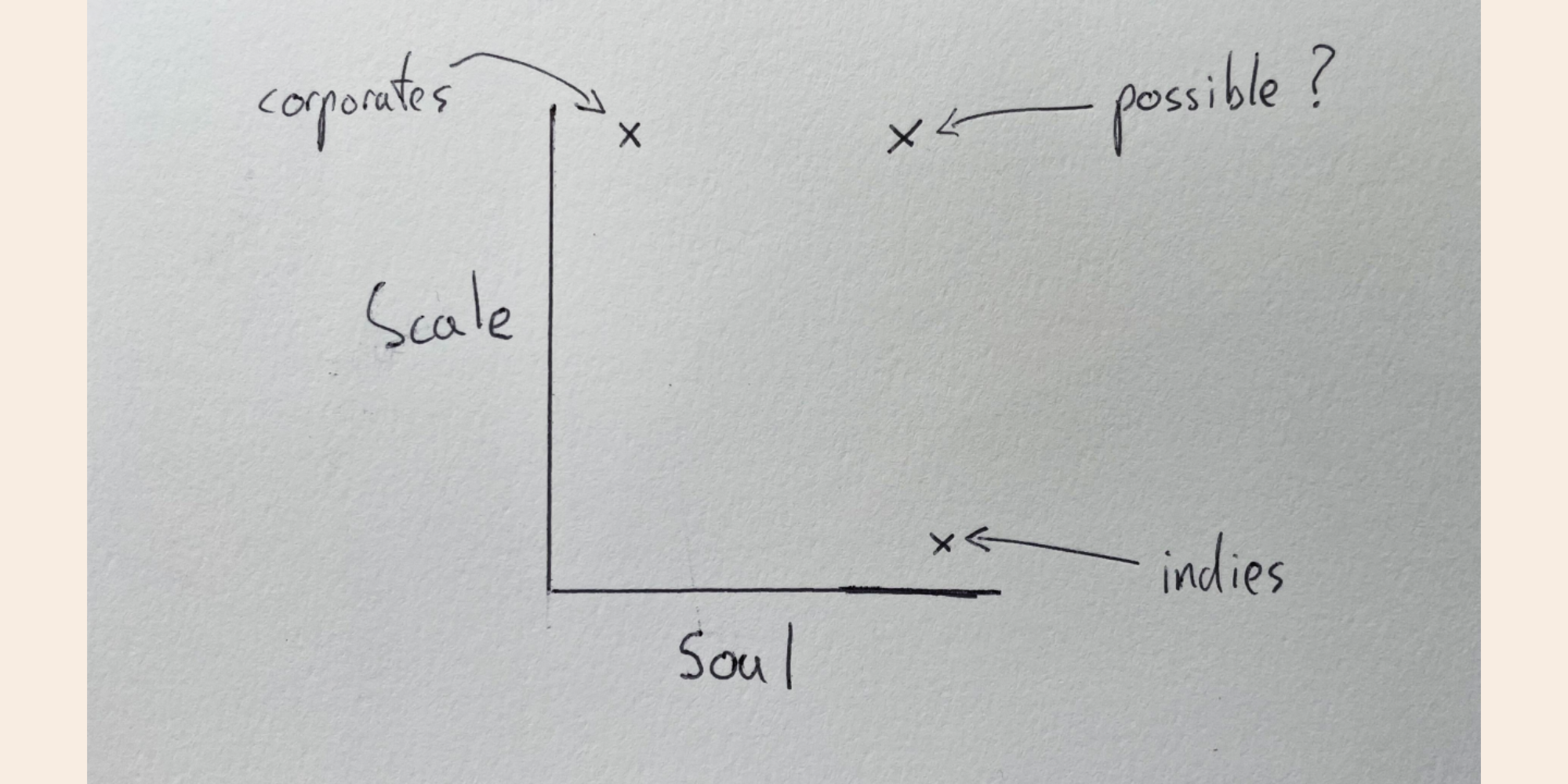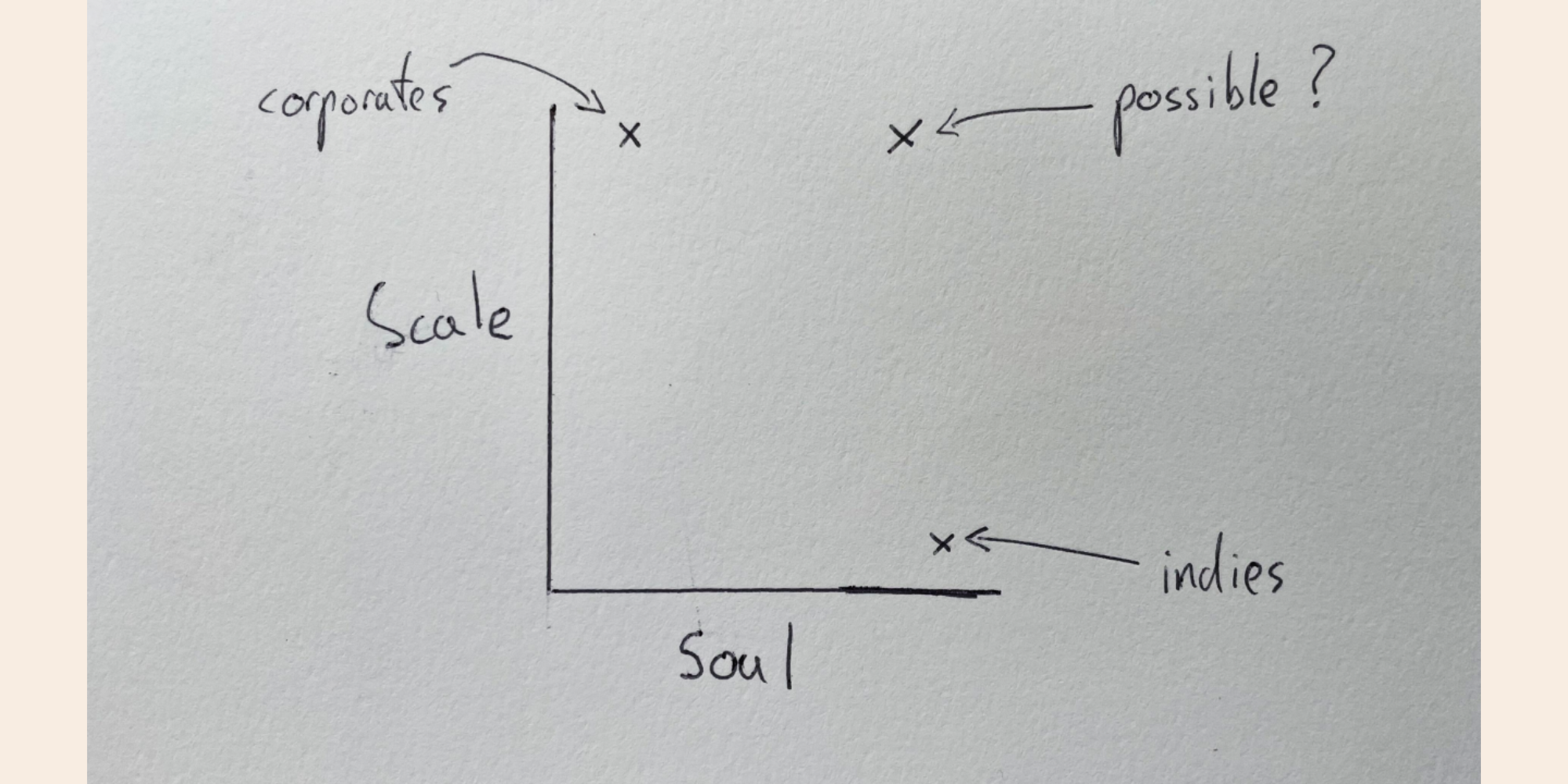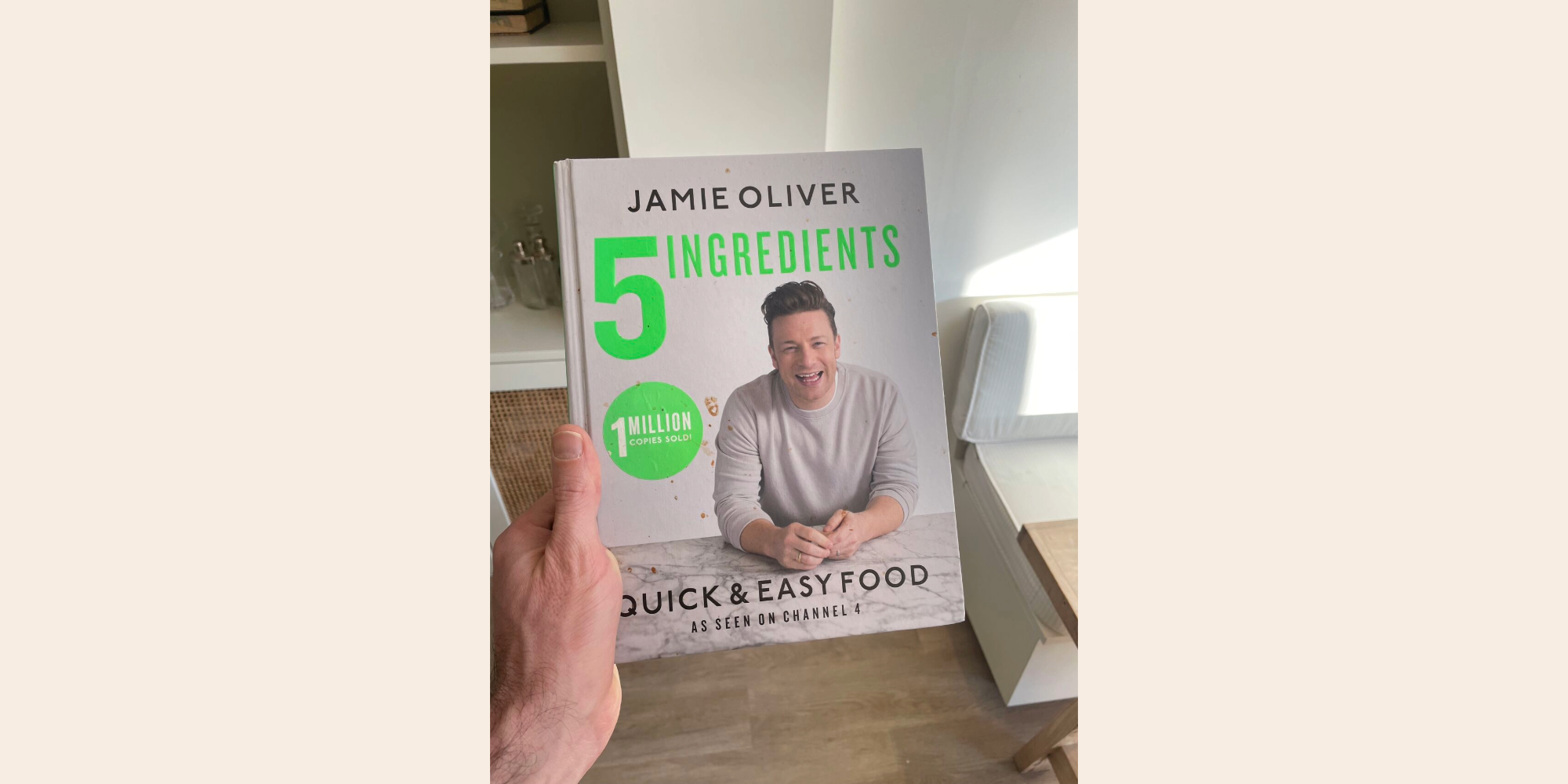This is the third in a four-part series of articles on ‘scaling with soul’.
Small, indie businesses often do well on the soul bit, but struggle to scale or deliver a curated experience. Larger businesses might quickly grow their footprint - but often end up feeling identikit and transactional.
So how do you hold these two conflicting goals of ‘scale’ and ‘soul’ in tension? I thought it would be interesting to share some of the things we’ve learned so far on the journey at Good Space.
I don’t traditionally love meetings. But then does anyone??
They often feel like an interruption to actually doing the work. I've sat in countless meetings where I’m thinking - I know exactly what I need to do - I want to get on and do it - so why are we just sat chatting?
We’ve all felt the ‘this could have been an email’ pain. But I think it’s important not to throw the baby out with the bath water. In my experience it’s not so much that I dislike meetings as a whole, but I dislike purpose-less meetings. The sort that are ill-prepared, unproductive or a drain on your energy.
David feels the same. And it’s why we have refused to settle for crap meetings.
So I’ll share what we’ve come up with at Good Space, in terms of our rituals, meetings and cadences.
This is quite specific to us, as a multi-venue hospitality business. I’d also stress that we’re still very much learning and evolving. But, hopefully laying out how and why we meet will be a helpful reference point.
I’ll run through it all by showing what we do on a regular basis (every week / month).
But before we dig in, here are the main reasons we see value in gathering:
- To get on the same page
- To problem solve
- To celebrate
- To connect
- To coach
- To develop professionally and for learning
So here’s our operating system. (As far as it relates to meetings and gatherings at least.)
WEEKLY
Snippets
First off I’m going to tell you about a meeting we don’t have.
We don’t have a weekly kick off call with the whole team. We figured it’s just information sharing, which can be done on Slack. So every Monday we share our weekly ‘Snippets’. Here is mine from this morning....

- Progress on our Quarterly Rocks: More on ‘Rocks’ later, but they are essentially the top 3-4 tasks for the quarter.
- Top From Last Week: The three main things we did or key things that happened)
- Top For This Week: The three main things we’re doing or that are happening this week. The purpose of this isn’t just collaborative. The process of writing clarifies in your own mind what the priority is this week.)
- Unreasonableness / joy: We share stories of where we saw an ‘unreasonable hospitality’. An incident where someone went above and beyond to take care of a customer. Either by us, or by others. Or we just share something that's bringing us joy.
- How am I doing/feeling right now? This is an opportunity just to share. Burdened? Excited? Kids not sleeping at home? What’s nice is that people answer very differently, depending on what they feel comfortable with.
Snippets are really helpful to get on the same page, to celebrate and to connect. Mainly people tend to respond to each other’s Snippets to cheer one another on (or commiserate).
Huddles
This is a 30min meeting, at the end of the week with the whole team. We do it online as all the Community Managers will need to be at their own venues. But it’s an opportunity for everyone to be ‘together’ at least once a week. We never discuss any actual detailed work or ongoing tasks. The purpose is purely cultural - to connect and for learning.
Usually David as the founder will share something inspiring he came across. But we’ve recently started getting all members of the team to take a slot - to share something they’ve learned recently. This is great for all of our learning, but especially good for whoever is actually teaching. The process of having to teach something to others embeds the learning more deeply. And it’s also a safe environment to practise public speaking :)
Level 10s
Right. This is where the rubber really hits the tarmac.
I see my life in two sections, with a distinct watershed moment. There was my life before I discovered Level 10s. Then there was my life after. (OK, that might be a tad overblown. But still, we’ve become evangelical about them for good reason.)
The Level 10 is a structured format for meetings, developed by Entrepreneurial Operating System (EOS). After some deep research from over 100 entrepreneurs, they found that these leaders dreaded meetings, giving them an average a 4/10 score. So they thought - how can we develop a meeting framework that takes that score to 10/10?
I love the framework they developed because the structured format ensures nothing gets missed, and knowing there is a place for everything enables you to stay fully present in whatever agenda item you are discussing.
But here’s the real kicker with the Level 10s. Each segment of the meeting is allocated a specific amount of time - and you set a timer to make sure you don’t overrun. This feels weird and formulaic at first. But honestly, it’s so effective. It makes each discussion happen in a punchy and efficient manner. People focus their thinking and get right to the point. Using the framework, I now actually leave meetings feeling energized and excited. Who knew that could happen!
If you want to find out more about why they are so helpful, and how you can use the framework for yourself, here is a good article by Notion.
MONTHLY
Monthly Commercials
The Support Team meets every month to review the commercials and see whether we’re on track. We tend to focus on revenue as our OpEx is fairly steady. For each venue we review the different revenue streams and take note of any significant increases or drops. We then feed this back to the venue teams (during their Level 10 meeting) for discussion.
Zoom Outs
A Zoom Out is an opportunity to get out of the weeds of the day to day (hence the name).
This is time for the team member’s benefit. It’s an opportunity for them to think ‘big picture’, to discuss their role within the team, how we as a company can best set them up for success, and also to discuss their professional development.
I used to think of these sessions as the ‘nice to have’ and Level 10s as the core requirement. But now it’s the other way round. Coaching, and investing in the team on a 1:1 basis, is the most important part of my role.
Here's a bit more detail on what happens in a Zoom out:
Role within the team
- I often ask this question: What’s stopping you from doing the best work of your life? It’s a simple question but it always unlocks a lot. We then work through the friction points.
- This is also an opportunity for them to voice how they are finding working at the company. And whether they have the right support and resources.
Professional development
- Investing in the team in this way enables them to ‘grow or go’. It means they certainly won’t feel stuck.
- We set professional development goals for the year, which are focussed around learning. But learning is comfortable and safe, so we also agree a ‘risk goal’ where they commit to doing something scary that might not work. The Zoom Out is where we check progress on these goals.
Coaching
- I tend to anchor this in an introductory exercise. Where we go from there will depend on the outcome of the exercise. I try to also let this be led by whatever the person being coached would find it helpful to discuss (at Good Space or beyond). This is very much for them, and I see myself as a resource to draw upon. So I don’t bring a pre-set agenda to discuss.
Importantly the Zoom Outs happen outside the work club. This sets the tone for them as something different, where you get into a different head space. It helps a change in perspective.
The main focus of the Zoom Out is the coaching. Taking the time to do this helps them stop operating from busyness, take a step back from the weeds of the everyday issues, do some deeper thinking, and regain a sense of empowerment.
'Receiving feedback sits at the intersection of these two needs - our drive to learn and our longing for acceptance.’ Douglas Stone
Next up I'll be sharing the final piece in this series. It's about how we navigated the tricky challenge of re-branding; attempting to consolidate multiple different brands under one umbrella, at the same time as keeping freedom of expression for each venue.
Jamie
#scalingwithsoul
